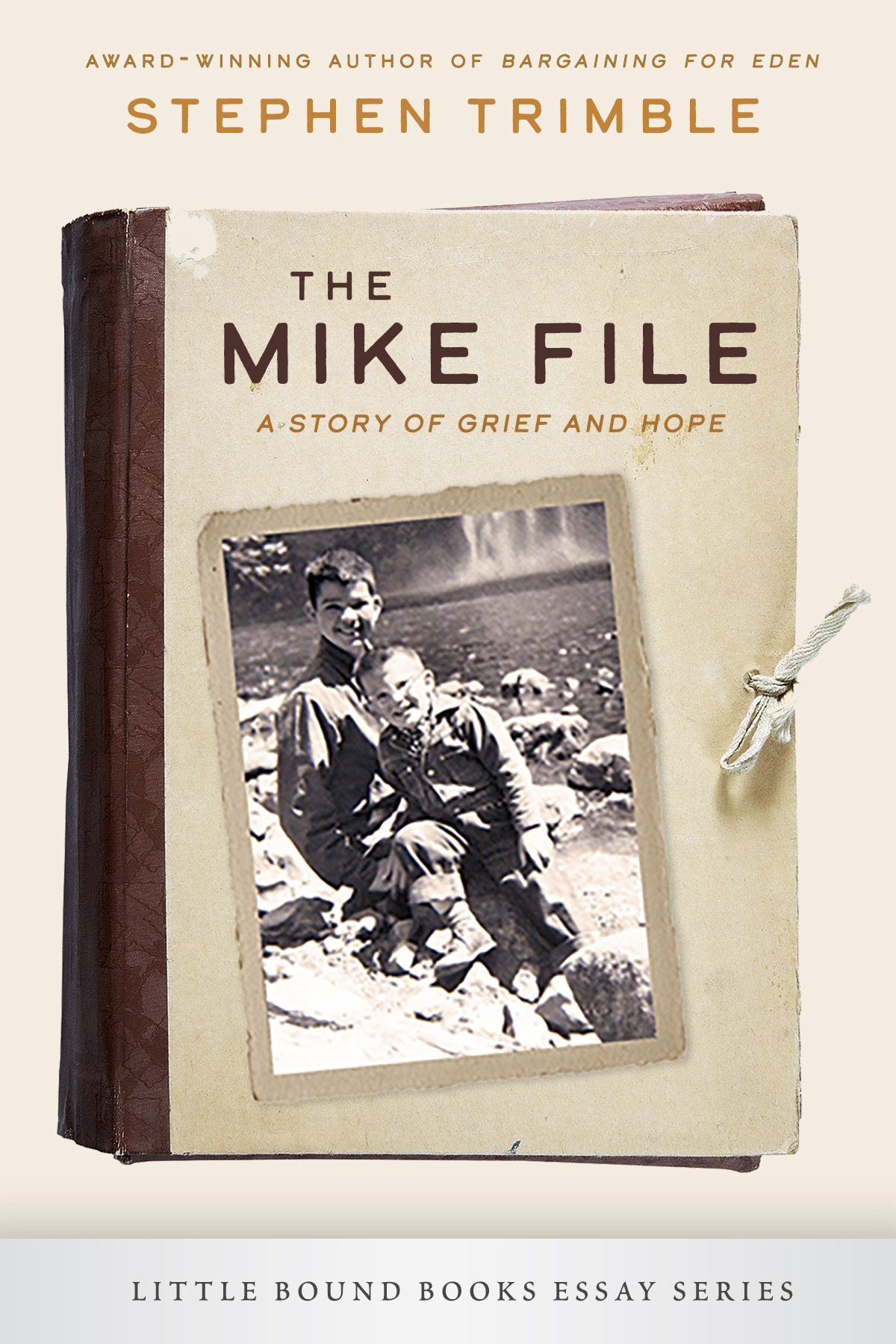The Mike File
A Story of Grief and Hope
2022 Human Relations Mental Health Awareness Book of the Year (Human Relations Indie Book Awards)
The Pushcart Prize, 2021 Nominee
"Stephen Trimble's The Mike File is insightful, heartfelt and unforgettable—a love letter to his family and a somber contemplation of what might have been." —Robert Kolker, author of Hidden Valley Road
"Trimble adds a new voice of eloquent witness to the growing literature of severe mental illness. With restrained grief and unrestrained remembrance, he reclaims in words his lost, loved and loving brother. He reminds us that the mad among us are human—and in many ways versions of ourselves." —Ron Powers, Pulitzer Prize-winning author of No One Cares About Crazy People
"This is a remarkable little book, meticulously detailed and yet expansive, drilling implacably toward reality yet compassionate, forgiving. Not every family buries the same secrets, but all bury truth in one way or another. The Mike File offers a compelling and empathetic argument for finding that truth." —Betsy Burton, author of The King’s English: Adventures of an Independent Bookseller
"I will never forget Mike, and the years he spent as a boy in an asylum. I will never forget Mike’s mother’s terrible jolt of discovery when Mike died. And I’ll surely never forget the profound journey that writer Stephen Trimble undertook as he faced the contents of the Mike File, the history of his brother’s short life." —Dorothee Kocks, author of The Glass Harmonica
"Research, imagination, and his talent as a writer of vibrant nonfiction are the tools of resurrection that Stephen Trimble uses to bring his older brother back to life in The Mike File." —David Gessner, author of All the Wild That Remains
"In his pursuit to understand his brother's life and indeed his own, Trimble forces us to acknowledge the painful truths about how we treat those with mental illness. This book is a beautiful and anguished revelation." —Melissa Bond, author of Blood Orange Night
In writing this memoir, Stephen Trimble set out to reach beyond the mantra he had repeated for decades: “I had an older brother—a half-brother—who left home when I was six. He was diagnosed sequentially as retarded, schizophrenic, and epileptic. He died years ago.”
The Mike File is Trimble's quest to claim empathy, his memorial to a forgotten life, his journey toward self-knowledge. His refusal to let his mother’s pain and disinclination to talk about her grief render Mike’s life invisible. After writing drafts that ran over 200 pages, Trimble distilled this story to its essence. The Mike File is a small book, 20,000 words, with a tight focus—the most powerful way to tell Mike's story.
Mike was eight years older than "Stevie." He was a sweet kid, slow to learn, diagnosed as “mildly retarded." But in 1957, rage and psychosis overwhelmed him and threatened his family. Mike's new diagnosis: paranoid schizophrenia, capable of violence. Trimble's parents had no choice but to commit Mike to the Colorado State Hospital. The author was six. Mike was 14. Mike never lived at home again.
Mike’s heartrending life mirrors the history of our treatment of mental illness in America. He spent nine years in overcrowded Colorado mental institutions. When mainstreamed back to Denver, he rejected his family. Ten years later, at 33, he died alone in a Denver boarding home, undiscovered for three days. The Denver media used his lonely death to expose these “ratholes” warehousing people with mental illness. This brutal publicity exponentially amplified Trimble's mother’s grief and guilt.
Steve closes the book with his imagined vision of how we could have done right by Mike—an alternative effective version of healthcare for those who struggle with disability and mental illness in America. An alternative that might have granted the author a lifelong relationship with his big brother. It's a moving conclusion to an unforgettable tale. Read Steve’s op-ed about Mike’s story in the Los Angeles Times.
(Little Bound Books, an imprint of Homebound Publications, 2021)
Robin Young interviews Steve on the NPR show, “Here & Now”
Steve tells Mike's story live at The Bee (Salt Lake City's version of The Moth)
Online reading with child psychologist Doug Goldsmith for The King's English, Salt Lake City
Discussion with Mental Health Center of Denver CEO Carl Clark on Colorado Public Radio
Interview with Steve and Homebound's publisher, Leslie Browning, for The Wayfarer
Steve gathers his social media posts to construct a condensed graphic version of the book on Medium

